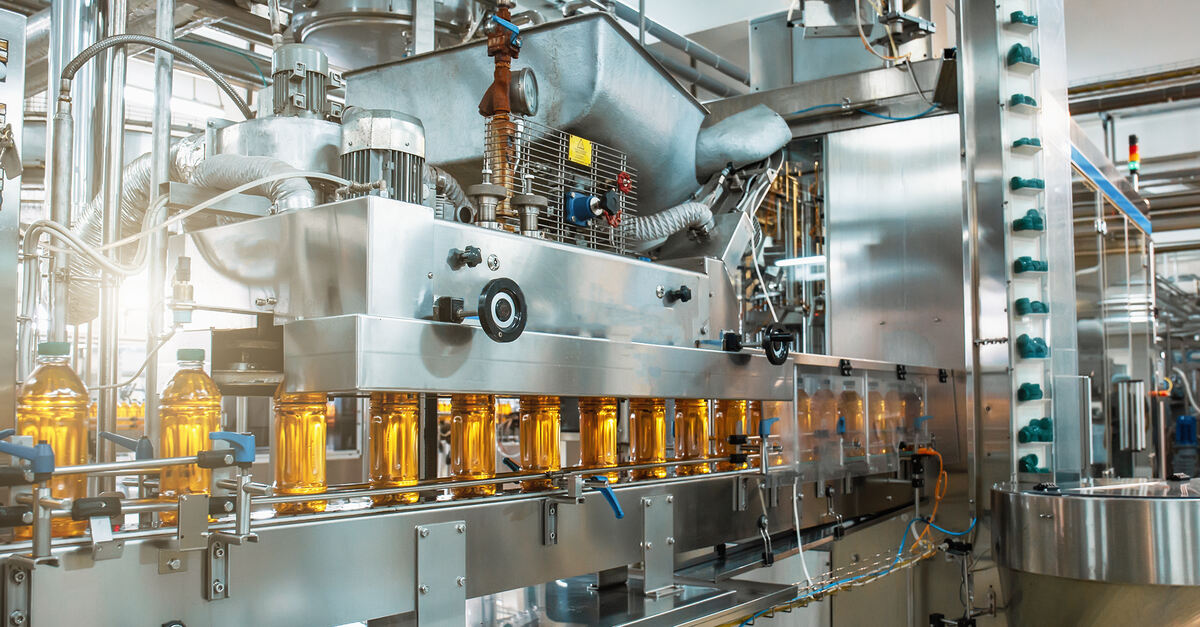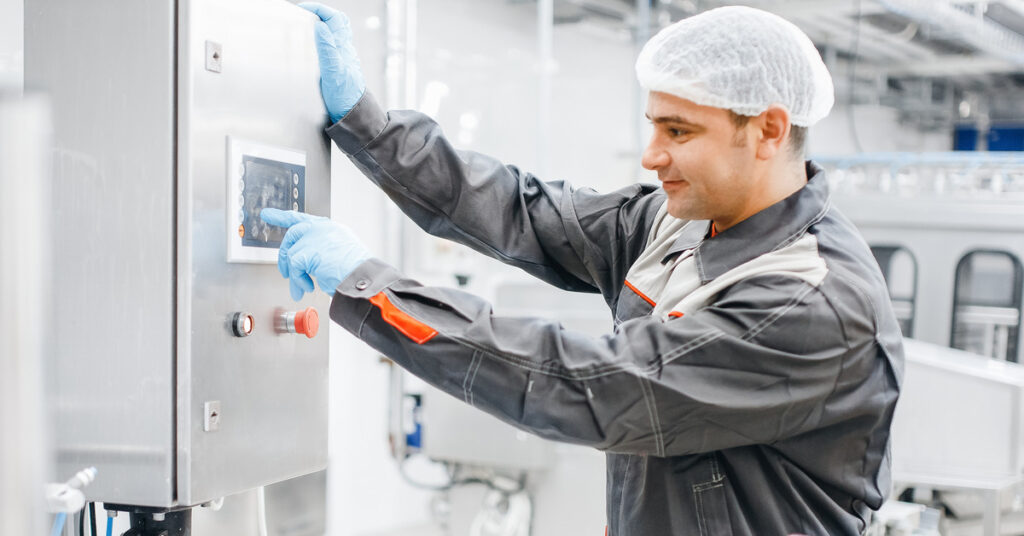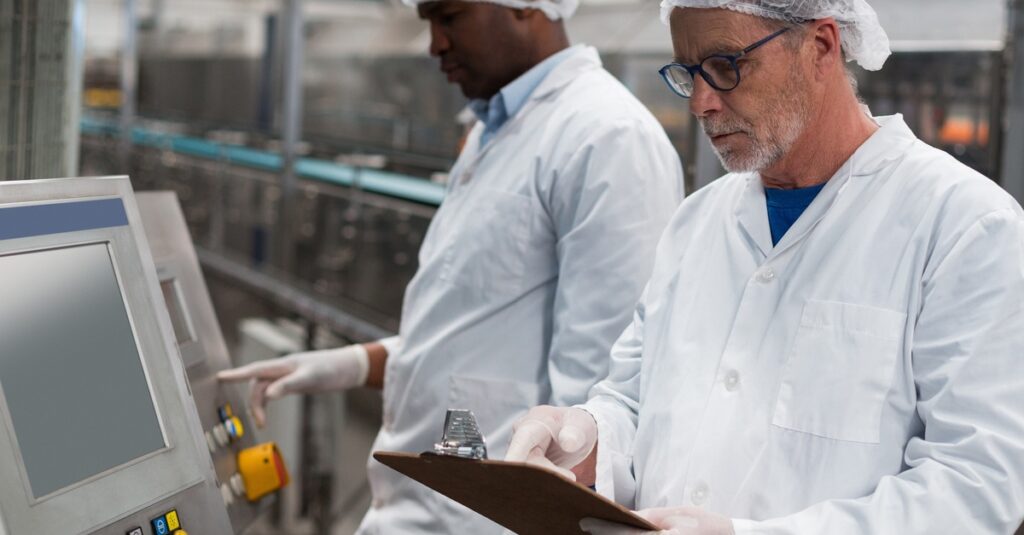Search
Additional Links Contact Us- Phone: (800) 423-4198
- Toll-Free: (815) 885-1900
- Email: [email protected]

ProMach is your partner from start to finish. Our product brands are grouped into distinct business lines that make the most sense to our customers, covering every function of the production line: Filling, Bottling & Capping, Decorative Labeling, Flexibles & Trays, Pharma, Handling & Sterilizing, Labeling & Coding, Robotics & End of Line, and Systems & Integration.
learn more
Clean machines are the foundation for successful operations. Achieving efficient packaging in high-demand industries starts with maintaining horizontal form fill seal (HFFS) machines. These tools for high-volume production require proper cleaning to enhance accuracy, improve efficiency, and extend their operational life. Use this guide to maintain your HFFS machines effectively.

Neglecting cleaning can lead to contamination, unexpected downtime, and premature degradation, all of which negatively impact your operations. Luckily, with the right processes in place, you can avoid these issues.
Protect your workers, and prevent damage to equipment. Prepare to clean safely and efficiently by following these guidelines.
Always unplug the machine, or disconnect it from its power source before starting. This prevents accidental operation during cleaning.
Workers must wear gloves, safety goggles, and any other personal protective equipment (PPE) mandated by company guidelines or industry regulations.
Assemble all necessary tools and cleaning solutions. This usually includes soft brushes, microfiber cloths, approved cleaning detergents, and sanitizing products. Make sure these tools are compatible with your HFFS machine.
Taking time to prepare properly minimizes risks and sets the stage for efficient cleaning.
Disassemble the machine to clean all areas effectively. Handle each part carefully to prevent damage or loss.
Detach components that tend to accumulate dirt and residue, such as sealing jaws, rollers, and belts. Refer to the user manual for specific disassembly instructions.
Use trays or labeled containers to group parts as you remove them. This simplifies the reassembly process and reduces the chance of misplacement.
Remember, understanding your machine’s design is critical during disassembly. If you want to learn more, contact us at HMC Products for trusted guidance.
After disassembly, follow these steps to thoroughly clean your HFFS machine.
Use compressed air or soft brushes to remove loose particles such as crumbs, dust, or leftover powdered material. Dry cleaning prevents residue from mixing with water during the wet cleaning phase, which could create hard-to-remove grime.
Apply a manufacturer-approved cleaning solution to eliminate grease, oils, and tougher residues. Then, wipe down surfaces with a microfiber cloth to avoid scratching delicate areas.
For food packaging applications, cleaning products should comply with food safety regulations. Take special care around electrical components—clean only with a damp cloth or approved sprays.
After cleaning the machine, use an industry-grade sanitizer to disinfect all touchpoints. This is an important step in packaging processes for consumable products. Rinse thoroughly to remove sanitizer residue and avoid contamination.
Once the cleaning process is complete, follow these steps for reassembly and inspection.
Use a lint-free cloth to dry dismantled components, especially areas prone to rust or dampness.
Follow the labeled containers or trays, and reference your machine manual to properly reinstall parts.
Check that no cleaning residue or loose debris is left behind. This is also an opportunity to check for wear or damage that may need to be addressed.
Finally, run a test cycle to ensure proper functioning before resuming normal production.

Consistent cleaning practices and maintenance will maximize your machine’s performance. Here are four tips to keep your HFFS machine running smoothly.
Develop a cleaning routine based on the machine’s workload and the nature of the products being packaged. For example, daily cleaning might be necessary for food-related operations, while weekly deep cleaning works for packaging that is less prone to contamination.
Document each cleaning session using a checklist, and account for every detail.
Only use tools and chemicals recommended by the machine’s manufacturer. Harsh products can corrode sensitive parts, while improper tools may cause physical damage. For instance, invest in soft bristle brushes for delicate areas, and avoid abrasive scrubbing pads.
A well-trained cleaning crew improves quality. Offer detailed training sessions on cleaning procedures, emphasizing why proper care is necessary.
Check for potential issues in every cleaning session. Look for signs of wear, misalignment, or damage.
Even with the best intentions, certain mistakes can compromise your cleaning efforts and harm your equipment. For optimal results, watch out for these common errors.
Overlooking removable components or crevices can leave residue behind that may build contamination. When possible, disassemble components to clean them thoroughly.
Using harsh or unsuitable cleaning chemicals can damage sensitive surfaces and corrode components. Always consult the machine’s manual or manufacturer guidelines to choose safe cleaning solutions.
After cleaning, failing to correctly reinstall components or secure parts tightly can lead to equipment malfunctions. Double-check that all parts are correctly aligned and functioning before use.
Cleaning shortcuts, such as skipping steps or rushing the process, often leave residue behind. This can affect the machine’s efficiency and hygiene.
Proper maintenance provides measurable benefits for your business, achieving efficiency and reliability as it continues to operate.
Clean machines operate at peak efficiency. They consume less energy and enable production runs with fewer interruptions. This also improves packaging quality and consistency.
Regularly removing contaminants reduces their impact on components. This proactive care extends the life of your valuable equipment, maximizing your investment.
Thorough cleaning helps detect potential issues, such as loose parts or minor damage. This helps avoid unexpected breakdowns and keeps your operations running seamlessly.
Demonstrate your adherence to industry standards with clean machines. Your commitment to quality protects your business while maintaining customer confidence.
Investing time and effort in proper maintenance not only protects your equipment but also strengthens your operations.
A consistent cleaning routine can transform your packaging processes. Cleaning your HFFS machines properly preserves your machinery and protects your production timelines and product quality. For detailed guidance, HMC Products offers support for your equipment to meet its full potential. Clean machines work better and last longer. Make routine cleaning a priority for improved performance!